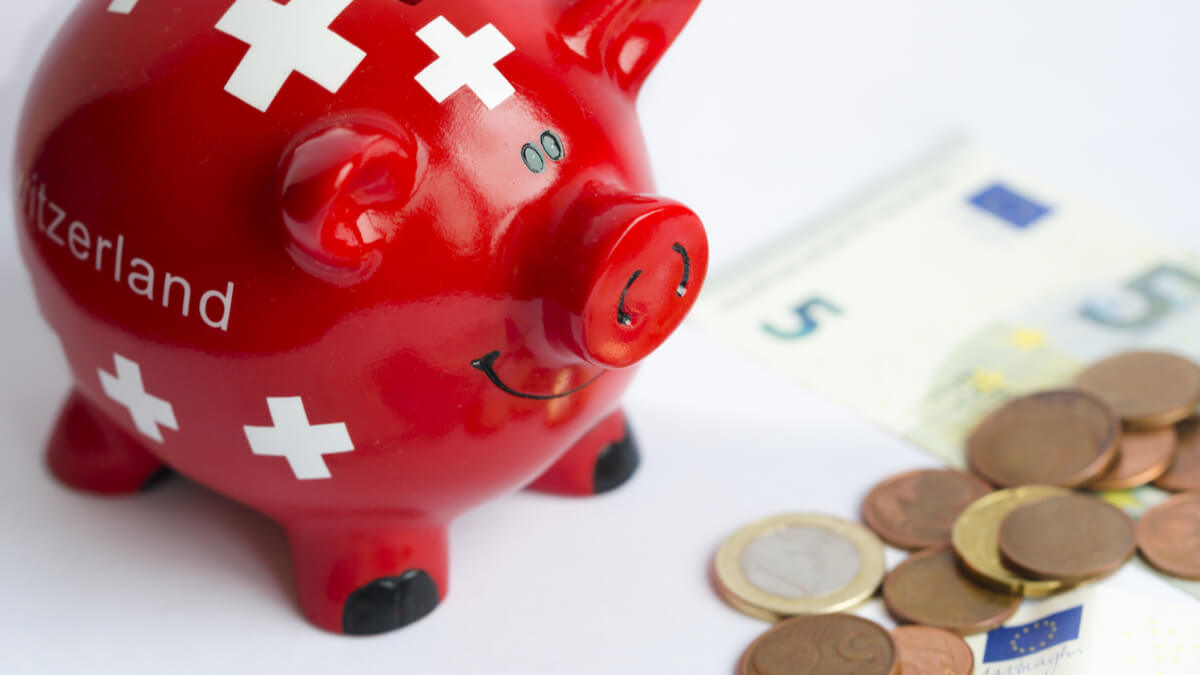Can you pay in euros in Switzerland without fees using a French bank card?
What precautions should be taken to avoid paying excessive fees when withdrawing cash or paying with a French bank card in Switzerland?

If you live in France and work in Switzerland, exchange rates are probably a key part of your financial life. Many cross-border workers lose part of their salary to high conversion fees and marked-up exchange rates.
To avoid unnecessary losses, one of the best strategies is to keep two accounts — one in Swiss francs and another in euros — and then transfer between them using an online service like Wise.
If you prefer a simpler solution, the Wise card allows you to spend and withdraw money at low and transparent rates on both sides of the border.
Whether you’re in Switzerland or France, exchanging Swiss francs is easy — but getting a good rate is not.
Before choosing a bureau de change or a bank, try a quick simulation using an online currency converter. This will show you the rate you should receive — but in reality, exchange offices and banks often apply less favourable rates.
The rate displayed online (the interbank or mid-market rate) fluctuates throughout the day, while most exchange offices update their rates only once daily. This delay means you rarely benefit from the most current rate.
Most bureaus also add a margin — a small percentage they keep as profit — which further reduces the amount you receive.
Wise uses the mid-market exchange rate, updated in real time and without hidden mark-ups. That means you always get the fairest rate available.
You can compare Wise’s rates with those of banks to see the difference for yourself.
To make sure you’re not overpaying:
Don’t rush to the first exchange office you find. Before exchanging, ask yourself:
Exchange offices are convenient for quick transactions, but rarely offer the best rates.
They often apply marked-up exchange rates that are updated only once per day, making them better suited for small or urgent conversions.
If you have a Swiss Post account, you can exchange your salary for euros and withdraw it in cash.
The process is safe but relatively expensive.
The exchange rate used is the one valid at the time your order is processed — often slightly marked up compared to the mid-market rate.
Fees also apply:¹
| Account type | Price |
|---|---|
| Account in CHF | 8 CHF + 1.5% on cash withdrawals (min. 10 CHF, max. 800 CHF) |
| Account in EUR | 8 EUR + 1.5% fee |
Cash orders are not immediate: if placed before 3:00 p.m. on a working day, delivery usually takes one business day. Orders after 3:00 p.m. or above 20,000 CHF can take two to five days.¹
Banks can also handle currency exchanges, whether by transferring from a Swiss franc account to a euro account or in cash.
However, these transactions often come with higher fees and marked-up rates.
The interbank rate (the real market rate between banks) is not the one offered to customers. Banks typically resell foreign currencies with a built-in margin — which explains why conversions can be costly.
You can withdraw euros in France directly from your Swiss franc account. This is convenient, but it usually involves extra fees.
The exchange rate and charges depend on your bank. If your account is held in Switzerland, the withdrawal is considered international and may include both fixed and percentage-based fees.
To minimise costs:
You can make an international transfer from your Swiss franc account to your euro account via your bank, but expect higher fees and a marked-up rate.
If you hold both a Swiss franc and euro account, Wise could be a good option. You can open an account and hold 40+ different currencies — including CHF and EUR — all in one place.
You’ll be able to move your money between your own accounts at the mid-market exchange rate, without hidden fees.
Wise also gives you a dedicated euro account number, so you can pay rent or bills in France just like a local account holder — a big advantage for cross-border workers.
With the Wise card, you can also withdraw cash at low cost both in France and Switzerland. Commissions are transparent and typically much lower than those charged by banks.
Living in France and working in Switzerland doesn’t have to mean losing money on conversions — with these tips, you can exchange francs for euros at the best possible rate.
Source:
Last verified on September 9, 2025.
This article is a translation of the original article published in French and was translated within 365 days of publication. While the content has been translated for accessibility, the data and sources referenced have not been updated since the original publication date.
*Please see terms of use and product availability for your region or visit Wise fees and pricing for the most up to date pricing and fee information.
This publication is provided for general information purposes and does not constitute legal, tax or other professional advice from Wise Payments Limited or its subsidiaries and its affiliates, and it is not intended as a substitute for obtaining advice from a financial advisor or any other professional.
We make no representations, warranties or guarantees, whether expressed or implied, that the content in the publication is accurate, complete or up to date.

What precautions should be taken to avoid paying excessive fees when withdrawing cash or paying with a French bank card in Switzerland?

Want to open a bank account in Switzerland? Find out how to do it and what requirements and documents are required.

Working in Switzerland, living in France? Learn how to find the best online Swiss bank for seamless cross-border financial needs.